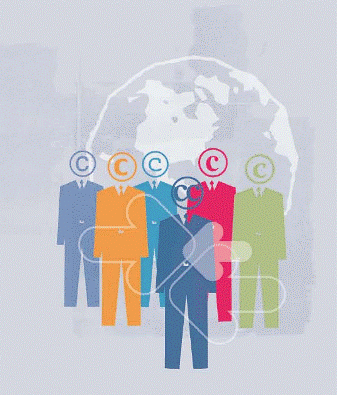MANAGING DIVERSITY

Retrieved from : http://www.sc.ehu.es/toweb5/VirginiaFerrer_NoeliaArenas/diversitySymbol.jpg
Before start to talk about diversity it is important to differentiate between what is a group and what is a team.
A Group is two or more people with common interests, objectives, and continuing interaction; on the other hand, a Team is a group of people with complementary skills who are committed to a common mission, performance goals, and approach for which they hold themselves mutually accountable.
There are four important aspects of group behavior:
· Norms of behavior
· Group Cohesion
· Social Loafing
· Loss of Individuality
Members of groups can contribute in different ways, this drives intellectual discuss and promotes problem resolution.
Diversity is the variation of social and cultural identities among people existing together in a defined employment or market setting (Cox 2001).
It is important because many aspects such as: global needs are diverse, Colombian markets are getting diverse, diversity affects the workplace.
According to Cox, 2001. Diversity can be seen as a value added activity or as a potential performance barrier. Diversity management is a way of creating an environment that will enable all people to use full potential to accomplish the mission.
Upon diversity it can be some misunderstandings like non verbal communication, trust, accents, stereotypes, etc.
It is important to mention that nowadays diversity is considered an organizational change that is the case of KPMG in Hong Kong.
Since diversity is a source of competitive advantage, what could be the recruitment strategies to effectively target to diverse groups? What would be the consequences of ignoring diversity?
Some recruitment strategies to effectively target to diverse groups could be the interviews with people from different cultures, religion, education and social status in order to have obtain different backgrounds and experiences that those persons could provide to the organizations, but in this point it is important to have in mind that all of them need to be open to social exchanges and that they respect each other, otherwise this diversity could work against the welfare of the company and could cause some troubles between the people involved in it.
If managers ignore diversity it could create many looses for the company, not only in terms of money but also in opportunities to have a more globalized staff. It would remove value of the company and the possibility to get advantage to the knowledge of the markets that those people have; slowing the growing of the company and its response to the global needs.
RELIGIONS AND THE ORGANIZATIONS

Retrieved from: mundobucay.blogspot.com
It is important to analyze religion when talking about organizations because it is a determinant of culture. The religion that has the biggest number of people is Christianity followed by Islam and Hinduism.
Now we can say that religion is Shapes attitudes toward work and entrepreneurship and can affect the cost of doing business. It gives formal approval to existing social arrangements.
The religions implications for international business are explained by Karl Marx who argued that once people have created a unified system of sacred beliefs and practices, they act as if it were something beyond their control.
Max Weber suggested the religion sometimes encourages social change. “If one works hard, he or she will succeed” (Weber, 1958).
General explanations of the principal business implications of religions can be:
· Islam: Businesses that are perceived to be making a profit through the exploitation of others, by deception, or by breaking contractual obligations are unwelcome.
· Hinduism: Hindu asceticism is said to undermine entrepreneurial activity.
· Buddhism: Buddhism is seen as a religion whose focus on spiritual achievement undermines wealth creation.
· Confucianism: Confucius taught that salvation is attained through right action based on three key teachings: Loyalty to one’s superiors, Reciprocal obligations of superiors to subordinates (guanxi), and Honesty. These teachings may lower the cost of doing business in Confucian societies.
What is the dominant religion in Colombia? What are the religious implications for doing business here? Give examples.
The dominant religion in Colombia is the Catholic with a percentage of 81 of the total population, followed by Protestantism 13.5%, Judaism 2,3% and others representing a very little percentage of the total population. The most important commercial implications of religion when doing business in Colombia are related to the attitudes towards work and the entrepreneur spirit. The Catholic religion allows people to have properties, profitability, investment and entrepreneurship. As we can see, here in Colombia there are few implications of religion in businesses because of the liberalized environment that we live in and the democratic regime we follow. But we cannot forget the business difficulties we could have with countries that don’t have our freedom and openness to commerce.
BIBLIOGRAPHY
· Cox Jr., T. (2001) Creating the multicultural organization. San Francisco: Jossey-Bass.
· Ely, R. and Thomas, D. (2001) “Cultural Diversity at Work: The Effects of Diversity Perspectives on Work Group Processes and Outcomes,” Administrative Science Quarterly, Vol. 46, No. 2, 2001, pp. 229–273.
· Jamieson, D. and O’Mara, J. (1991) Managing workforce 2000: Gaining the diversity advantage.
· Nelson, D and Quick, J.C. (2009) Organizational culture. In Organizational Behavior: Science, the real world and you.
· Slater, Stanley, F., Weigand, Robert A., Zweilein, Thomas J. (2008) ¨The business case for commitment to diversity¨. Business Horizons 51: 201-209.
· Fang, T (1999) Chinese Business Negotiating Style, London: SAGE Publications Ltd.
· Hill, C. (2007) International Business: Competing in the Global Marketplace. 7ed. New York: McGraw-Hill/Irwin.
· Weber, M. (1958) The Protestant Ethic and the Spirit of Capitalism, New York: Scribner's Press.

No hay comentarios:
Publicar un comentario